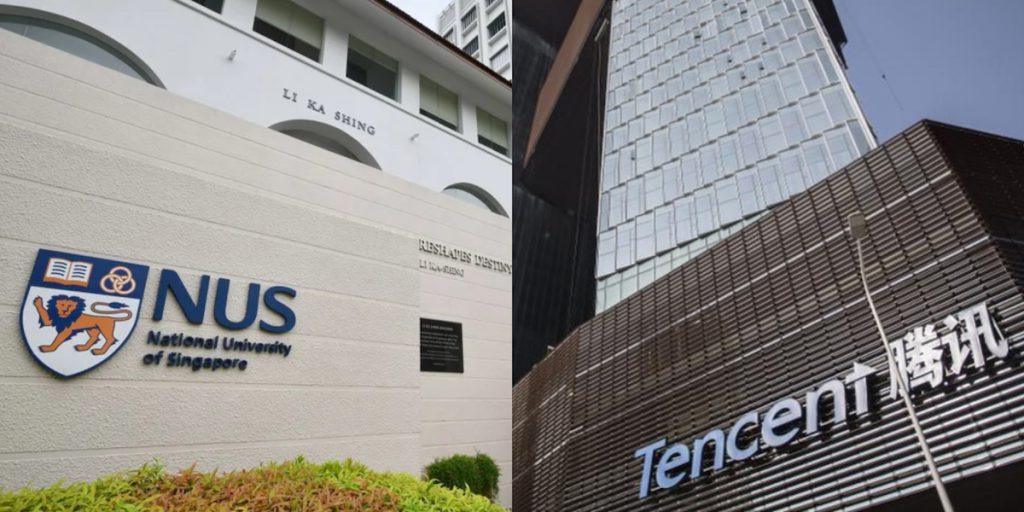Chinese Internet giant Tencent Holdings and the National University of Singapore (NUS) announced today its three-year partnership to set up a joint incubator programme for startups in Singapore.
Under this partnership, Tencent Cloud will provide cloud solutions, technical support, expertise and training to NUS-affiliated startups incorporated in Singapore.
According to Professor Freddy Boey, NUS Deputy President (Innovation & Enterprise), these startups can benefit from Tencent Cloud’s wide range of products and gain exposure as well as awareness through Tencent’s ecosystem.
How Will S’pore Startups Benefit
Within the first year of the partnership, up to 20 NUS startups will be selected by Tencent and NUS to utilise Tencent Cloud services.
These NUS startups will receive support and training related to Tencent Cloud products, and can gain more insight regarding best practices in their respective fields.
Tencent’s cloud products cover a range of sectors including finance, telecommunications, e-commerce, travel and hospitality, as well as online gaming and entertainment.
In addition, Tencent will support the selected NUS startups with marketing efforts, and selected companies will also be featured as speakers in events organised by Tencent.
Lastly, the selected NUS startups will also be granted access to Tencent’s Artificial Intelligence (AI) Lab, dedicated AI services and other relevant means to create applications and other features.
Tencent will also provide the selected NUS startups with reasonable access to other ecosystem support from Tencent, along with opportunities to obtain direct or other investments, receive leads and build connections with global ecosystem partners.
“We are proud to collaborate with the National University of Singapore, a top-tier academic institution, in nurturing local companies in the country by leveraging Tencent’s expertise in the cloud space,” said Flying Wu, General Manager, International Business Group of Tencent.
“We look forward to more collaborations with different educational institutes and businesses in Singapore in the future.”
Featured Image Credit: Mashable SEA / Qilai Shen via Bloomberg










